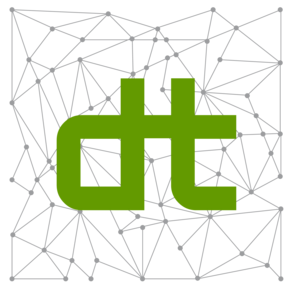Mechanisms and characteristics of digital labor platform ecosystems
In recent years, the gig economy has changed the way people work and is increasingly the subject of scientific research. Traditional forms of work are increasingly being supplemented by smaller tasks - so-called gigs - that are mediated and coordinated via digital platforms (Ashford et al. 2018). Research has already shown that data portability, platform switching costs and lock-in effects exist with regard to these digital platforms (Farrell and Klemperer, 2007).
However, the effects of mechanisms on digital labor platforms in the gig economy have hardly been investigated to date. For example, when digital platforms use reputation mechanisms, workers on the platform may be prevented from transferring their ratings to other platforms, leading to lock-in effects and high platform switching costs, making them vulnerable to exploitation by platforms (Ciotti et al., 2021). Employees on the platform become increasingly dependent on the platform, as in the event of a platform change, neither the reputation and ratings built up and fought for over time nor the designed profile can be transferred to another platform. Algorithms also play an important role in job placement on the platform. This work with algorithms influences the employees on the platform to varying degrees.
In addition to exploring these challenges through platform mechanisms, this thesis aims to develop possible solutions, such as exit options from the digital platform ecosystem.
Exemplary questions
- Which mechanisms and characteristics lead to challenges for employees in a digital work platform ecosystem?
- What possible solutions exist for these challenges?
- What role does the portability of platform data play in the gig economy and how can platforms influence this process?
The following research methods, for example, can be used for the work:
-
Primary data collection (e.g. interviews, surveys, Delphi survey)
-
Analysis of secondary data or publicly available data
Reqirements
This topic is aimed at students of economics or related subjects, such as industrial engineering or applied computer science, who meet the following requirements:
- Interest in current research on digital work platforms and platform ecosystems
- High degree of independence and personal responsibility
- Experience with scientific research methods and analytical skills
How to apply
If you are interested in this topic, please send your application documents to abschlussarbeit.dt.wiwi@tu-dortmund.de
Literature
- Ciotti, F., L. Hornuf and E. Stenzhorn (2021). “Lock-in effects in online labor markets. Available at SSRN:” CESifo Working Paper (9379).
- Farrell, J. and P. Klemperer (2007). “Coordination and lock-in: Competition with switching costs and network effects” Handbook of industrial organization 3, 1967–2072.
- Ashford, S. J., B. B. Caza and E. M. Reid (2018). “From surviving to thriving in the gig economy: A research agenda for individuals in the new world of work” Research in Organizational Behavior 38, 23–41.


